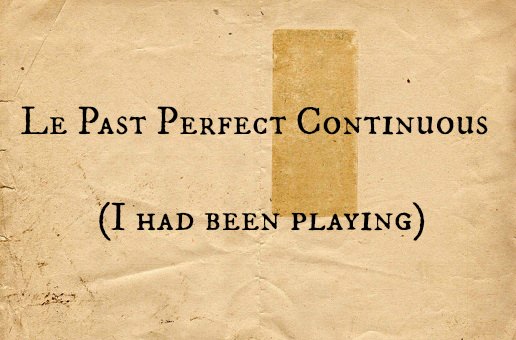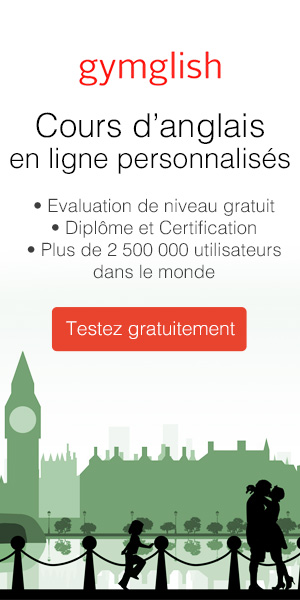Le past perfect continuous (I had been playing…)
Le past perfect continuous (ou past perfect continu) est aussi appelé past perfect progressive ou past perfect en be+ing.
- When I went outside this morning the ground was wet. It had been raining.
- = Quand je suis sorti ce matin le sol était mouillé. Il avait plu.
- We had been playing football for ten minutes when it started to rain.
- = Nous jouions au football depuis dix minutes quand il s’est mit à pleuvoir.
GAGNEZ DU TEMPS ! TÉLÉCHARGEZ EN UN CLIC LE PACK COMPLET: 70 FICHES DE GRAMMAIRE + LES TEMPS EN PDF
PLUS D'INFOS_
1/ Formation
sujet + had been + base verbale + ing
| Affirmative | Négative | Question | |
|---|---|---|---|
| I / you / he / she / we / you / they_ | … had been playing_ | … had not (hadn’t) been playing_ | Had … been playing?_ |
_
- (+) She had been travelling for one month when she finally arrived in Mexico.
- (?) Had she been travelling for one month when she finally arrived in Mexico?
- (-) She had not been travelling for one month when she finally arrived in Mexico.
2/ Utilisation
* Quelque chose qui a commencé au passé et a continué jusqu’à une autre action ou événement passé (en combinaison avec le past simple):
- Carol had been saving money for more than a year before she left for Canada.
- How long had you been studying Japanese before you moved to Osaka?
- How long had he been watching TV when he felt asleep?
- We had been trying to open the door for five minutes when Peter found the key.
- Bruce wanted to walk because he had been sitting all day at work.
- How long had you been waiting before the bus arrived?
- They had been talking for over an hour before Kat arrived.
- Phil had been working at that restaurant for two years when it went out of business.
* La cause et l’effet de quelque chose au passé
On peut voir le résultat de quelque chose qui s’est passé (on peut utiliser ‘because’)
- Tom was very tired. He had been running.
- = Tom was tired because he had been running.
- Tina gained weight because she had been eating too much.
- Somebody had been smoking. I could smell tobacco.
- I was disappointed when she canceled the trip. I had been looking forward to spend some time with her.
- Danny was crying because he had been fighting with his brother.
* le discours indirect
- ‘I was working late in the garage last night.’ => Nathan told them he had been working late in the garage last night.
- ‘I have been partying all night.’ => Carol said she had been partying all night.
3/ Notes
⚠️ Past Continuous ou Past Perfect Continuous ?
Avec le past perfect continuous, la durée de l’action a davantage d’importance, tandis qu’avec le past continuous c’est l’action en elle-même qui a le plus d’importance.
Toutefois, si on ne précise pas la durée (for 45 minutes, for one week, since friday…) de nombreux anglophones préfèrent utiliser le past continuous.
- Past continuous => We were playing tennis when it started raining.
Au moment où nous jouions au tennis il a commencé à pleuvoir. L’accent est mis sur ce que nous faisions au moment où il a commencé à pleuvoir (c’est-à-dire la partie de tennis).
- Past perfect continuous => We had been playing tennis (for 45 minutes) when it started raining.
Nous jouions au tennis depuis un certain moment, où on venait juste d’arrêter, quand il a commencé à pleuvoir. L’accent est mis sur la durée de l’action (ici la partie de tennis).
⚠️ Certains verbes ne prennent pas la forme continue:
Il s’agit principalement de verbes abstraits ou liés à un état mental
like / love / hate / prefer / need / want / belong / contain / fit / consist / seem / realise / know / believe / imagine / understand / remember
- Chris had been wanting to travel around the world before he died. ❌
- Chris had wanted to travel around the world before he died. ✔️
⚠️ Il n’y a pas de past perfect continu pour le verbe être (to be):
Had been being est simplement remplacé par had been
- Sam had been being very happy because he won to the lottery.
⚠️ La place des adverbes
Les adverbes se places avant been: always, only, just, never, ever, still, etc.
- He had just been waiting there for two minutes when the train arrived.
- Had he just been waiting there for two minutes when the train arrived?
©Anglais-rapide.fr – ne pas recopier ces leçons sur d’autres sites !


Bien